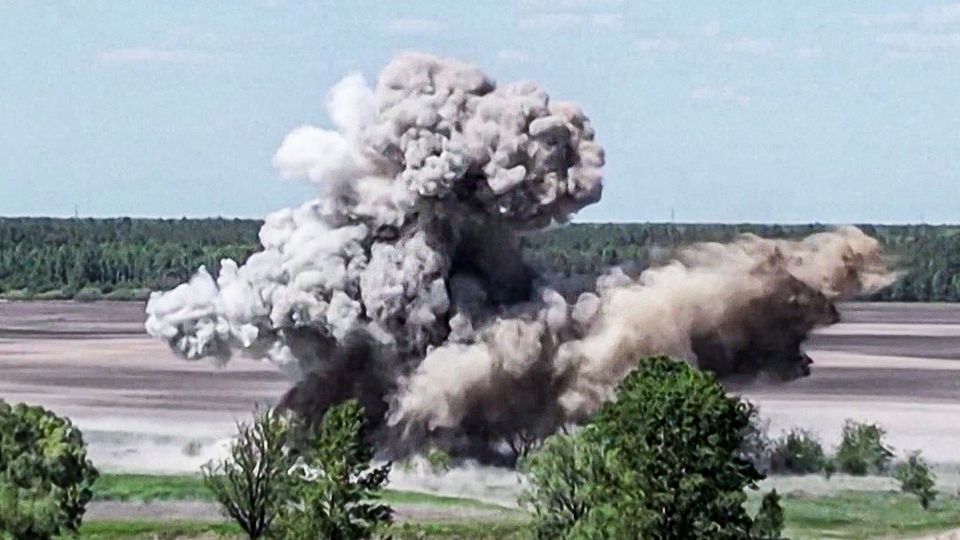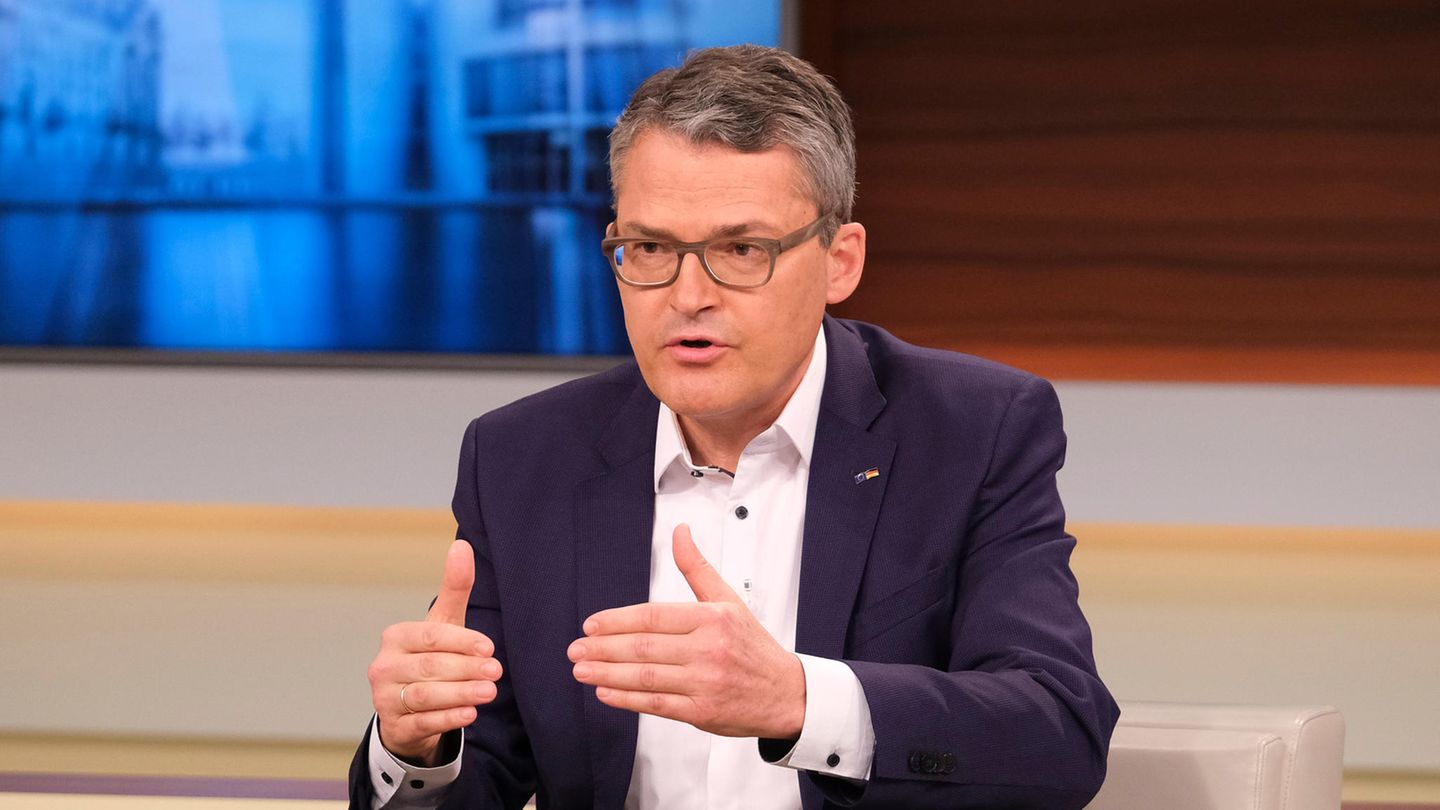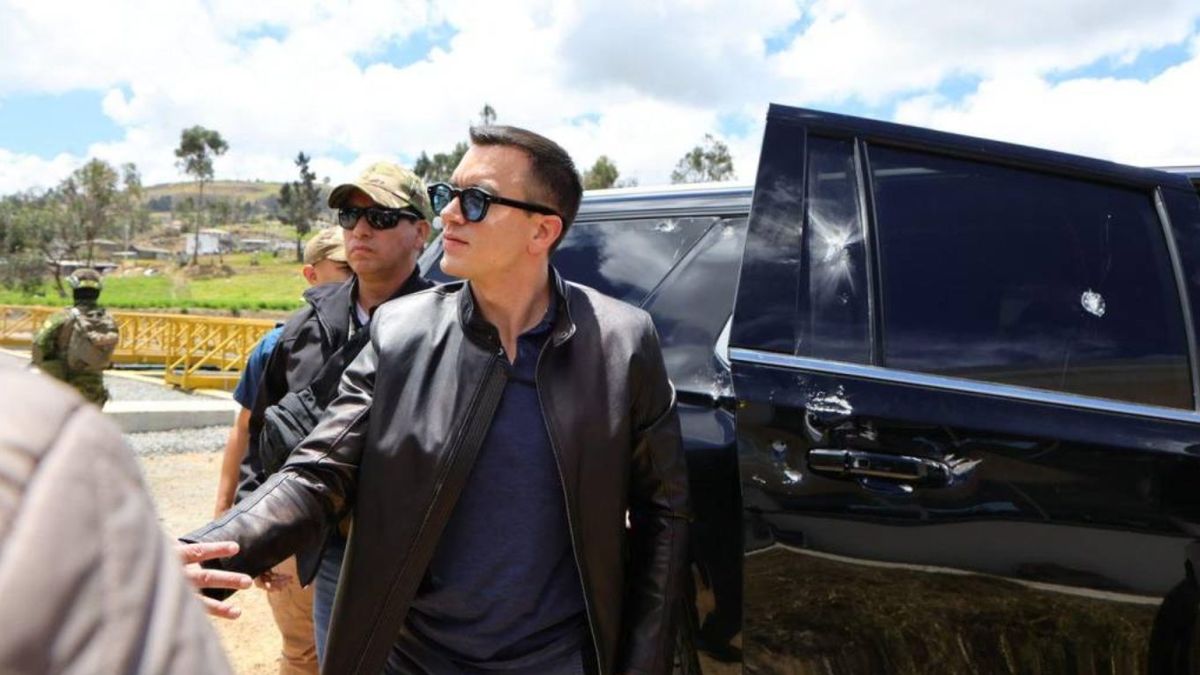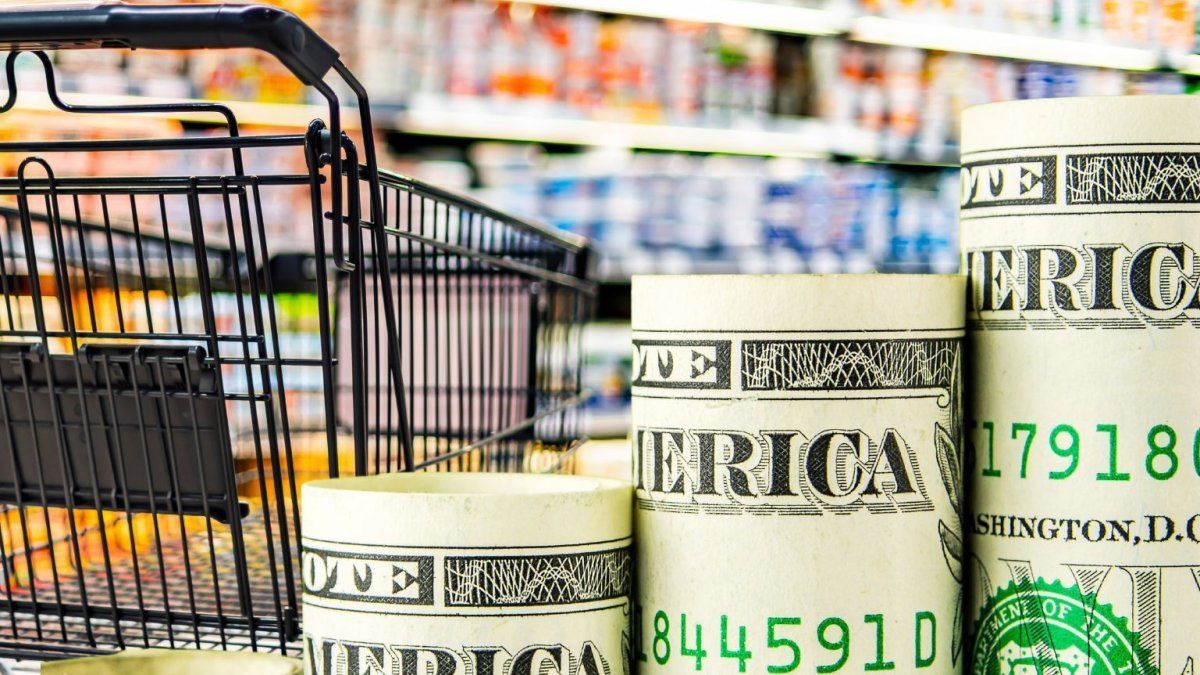TV debate
Roderich Kiesewetter (CDU) sharply attacks Chancellor Olaf Scholz on “Anne Will”. He cannot understand that Germany has still not delivered heavy weapons to Ukraine. He is not alone in his criticism.
By Simone Deckner
He was not a guest himself, but Chancellor Olaf Scholz (SPD) was at the center of the sometimes heated discussion on “Anne Will” on Sunday evening. Above all in the criticism: The delays in the arms deliveries to Ukraine and the communication of the government. Roderich Kiesewetter (CDU) emerged as the sharpest critic of the head of government. The retired colonel said he did not understand why Germany had not yet delivered heavy weapons to Ukraine, even though this had long been decided across party lines.
One man is clearly responsible for this: “The problem lies in the Chancellery,” Kiesewetter named Scholz as the culprit. “I think he’s playing for time,” he said. When Anne Wills asked what Scholz was supposed to get out of such games, Kiesewetter replied with a serious reproach: The chancellor didn’t give him the impression that he was on the side of Ukraine, worse still: “I’m afraid that the chancellor doesn’t wants Ukraine to win this war” – at least if winning means a complete withdrawal of the Russians from the country.
Michael Roth took on the role of Scholz’s defender: It was “inappropriate” to “accuse the Chancellor of playing games” in such a dramatic situation, Roth said. He also finds it difficult “to give military advice here from an armchair,” Roth said. “The Ukrainians and President Selenskyj must decide for themselves how this war will be ended.” The Bundeswehr also has “only limited capacity” and the industry cannot deliver the heavy weapons as quickly as desired.
“Anne Will” discussed arms deliveries to Ukraine:
- Michael Roth (SPD), Member of the Bundestag and Chairman of the Committee on Foreign Affairs
- Roderich Kiesewetter (CDU), member of the Bundestag and former colonel
- Marina Weisband, German-Ukrainian publicist, member of the Greens
- Jan van Aken, (Die Linke) works at the Rosa-Luxemburg-Foundation on international crisis and conflict areas
- Carlo Masala, Professor of International Politics at the University of the Federal Armed Forces in Munich
“Bigger NATO, more weapons – the right answer to Putin’s war?” Anne Will asked this question at the beginning of the discussion, but everything revolved around the arms deliveries, and the discussants no longer came to NATO. Roderich Kiesewetter complained that “Germany, as a hinge country in Europe, is not doing what we could,” namely: Immediately supply heavy weapons, namely those that Ukraine needs, such as the Marder and Leopard battle tanks and infantry fighting vehicles. Instead, the federal government wants to send the “Gepard” anti-aircraft gun tank: “They weren’t on the wish list,” says Kiesewetter. But even none of these have arrived in Ukraine so far: “None has been delivered so far!”
Left-wing politician Jan van Aken represented a different thesis: More weapons are now not required, but more effective sanctions. Van Aken called the previous ones “ridiculous”. Every day, Germany transfers another 320 million euros to Moscow for Russian oil, “that’s the opposite of sanctions,” says van Aken. Instead, the accounts of Russian multi-millionaires must be frozen, “then you hit Putin hard,” said the left-wing politician.
Marina Weisband: “Lots of trust lost”
The German-Ukrainian publicist Marina Weisband also criticized Olaf Scholz. Weisband: “I would have liked to have heard from the Federal Chancellor: ‘Ukraine must win.'” Instead, in his government statement, the Chancellor only said that Ukraine “must exist”. “I don’t see any clear line from the German government at all,” Weisband said. She is not alone in this perception either: in Ukraine, people now take it for granted that “nothing can be expected” from Germany and France. Weisband said that every time Macron or Scholz spoke to Putin on the phone, their political line would “soften”. “We are giving away a lot of trust,” she criticized the European heads of government.

She understands all people who are afraid of nuclear war, Weisband said, but as a Ukrainian with a Jewish background she learned that “the best remedy for fear is not to give something to an aggressor, it is resilience, it is resilience and it’s subversion.” Weisband continues: “We are helping the Ukrainian refugees and we are making sure that Ukraine wins.” There will be no avoiding continuing to talk to Putin and forcing him to the negotiating table, “but we won’t be able to believe a word he says,” Weisband warned.
Anne Will ended her political talk with a self-critical conclusion: “I’m not sure if we’ve helped people go to bed less afraid now.”
Source: Stern
David William is a talented author who has made a name for himself in the world of writing. He is a professional author who writes on a wide range of topics, from general interest to opinion news. David is currently working as a writer at 24 hours worlds where he brings his unique perspective and in-depth research to his articles, making them both informative and engaging.




